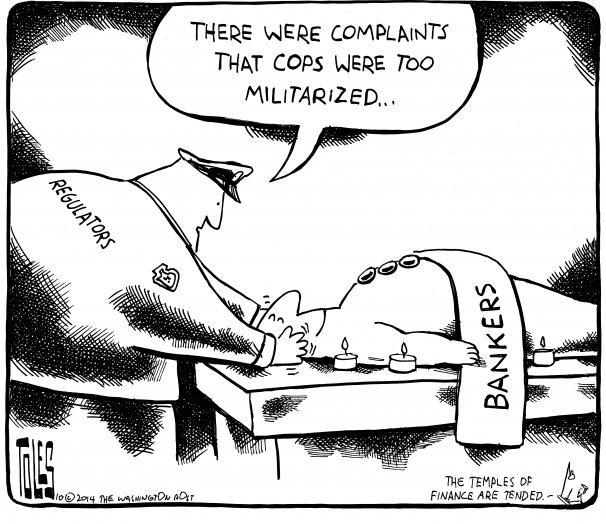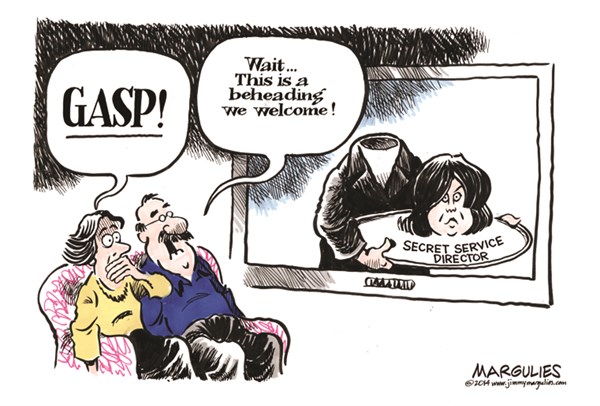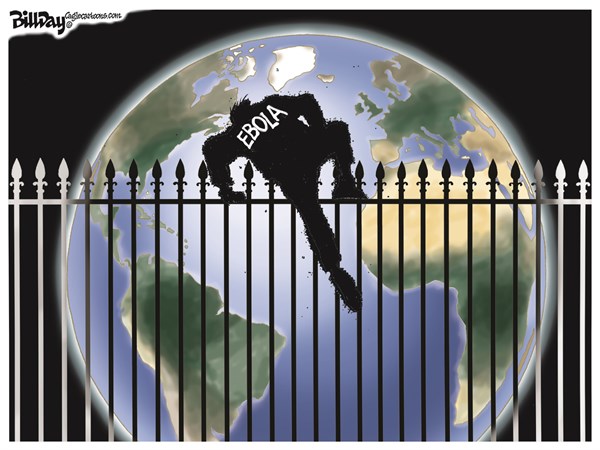“If you have nothing to hide, it will still be found.”
Climate Progress referenced a story in the Canadian Press:
Unexpected visitors have been dropping in on anti-oil activists in the United States — knocking on doors, calling, texting, contacting family members. The visitors are federal agents.
Opponents of Canadian oil from tar sands say they’ve been contacted by FBI investigators regarding their involvement in protests that delayed northbound shipments of equipment to Canada’s oil sands. These protests have blocked highways in order to delay shipment of the equipment.
The FBI visits have been happening in Oregon, Washington State, and Idaho, and a lawyer working with the activists told the Canadian Press that he has advised them not to talk to the agents: (brackets and emphasis by the Wrongologist)
It’s always the same line [by the FBI]: ‘We’re not doing criminal investigations, you’re not accused of any crime. But we’re trying to learn more about the movement.’
Yet, the FBI told the Canadian Press that it doesn’t investigate political movements, but focuses on crimes. They quote FBI spokesperson, Ayn Dietrich:
The FBI has the authority to conduct an investigation when it has reasonable grounds to believe that an individual has engaged in criminal activity or is planning to do so…This authority is based on the illegal activity, not on the individual’s political views.
But the FBI made public in January 2014 that they had changed their mission statement. Instead of listing “law enforcement” as its “primary function,” as it has for years, the FBI fact sheet began to list “national security” as its chief mission. Foreign Policy reports:
Between 2001 and 2009, the FBI doubled the amount of agents dedicated to counterterrorism, according to a 2010 Inspector’s General report. That period coincided with a steady decline in the overall number of criminal cases investigated nationally and a steep decline in the number of white-collar crime investigations.
Back in 2000, the FBI sent prosecutors 10,000 cases. That fell to 3,500 cases by 2005. Foreign Policy reports on a 2007 Seattle Post-Intelligencer investigation that the Justice Department did not replace 2,400 agents assigned to focus on counterterrorism in the years following 9/11. The reductions in white-collar crime investigations became obvious:
Had the FBI continued investigating financial crimes at the same rate as it had before the terror attacks, about 2,000 more white-collar criminals would be behind bars.
That explains why no executive in a “Too Big to Fail” bank went to jail after the 2008 economic meltdown.
Now, we have one serious issue. The FBI is essentially doing pre-emptive security work for a private corporation, and it’s a Canadian corporation at that. From Charlie Pierce:
The idea that your friendly neighborhood Fed is stopping by to “learn more about the movement” should be chilling for a number of reasons. The first is…the FBI has no business dropping in on citizens who have not committed a crime, nor are they suspected of having committed one, and especially not at the behest of a private multinational concern.
If Keystone were approved, it is likely that there would be demonstrations up and down the route of the pipeline, from northern Alberta to the Gulf of Mexico. More from Pierce:
That the FBI is already gathering intelligence indicates that the Bureau knows this and is warming up for such eventualities. Names are going into a file…This never has worked out well in the area of political dissent in this country, and, given the fact that we now have a staggering network of covert domestic intelligence-gathering and a huge government law-enforcement apparatus, it’s unlikely to work out well in the future…
There is a name for what happens when the government’s law-enforcement powers are put at the direct convenience of private corporations. Fascism.
Here are a few questions: Is this just a little hippie punching by the Fed Coats?
Is the ghost of J. Edgar Hoover back, dresses and all?
Why do the Koch brothers’ corporations now justify FBI support?
The FBI owes the oil sands activists and the rest of America, a better explanation than, “Don’t worry. We’re not doing what all of you know we did in the past.”







